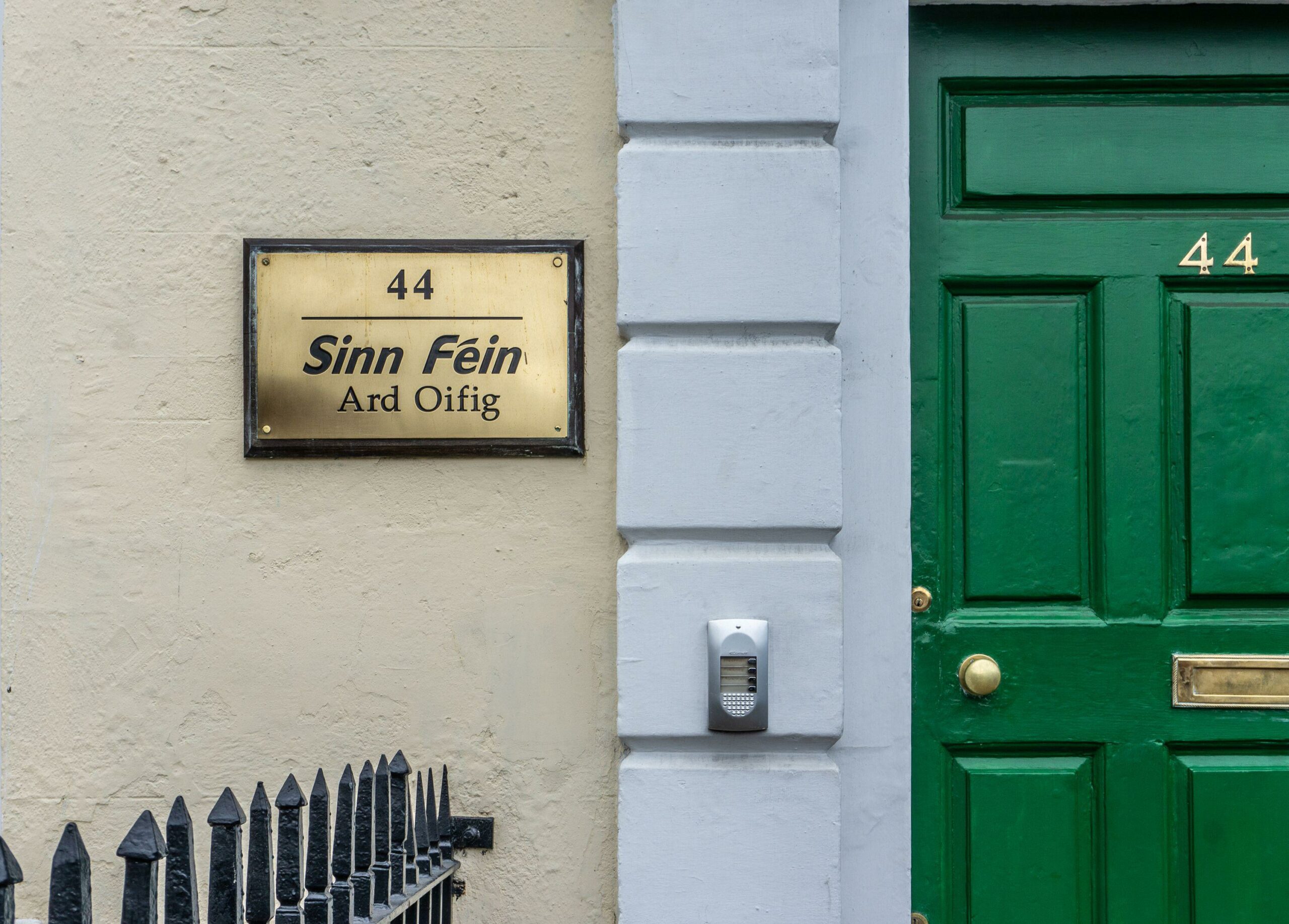I first met Oliver Callan in 1998. We were both teenagers from the country trying to figure out our way around Dublin. Oliver had come from Co Monaghan (Inniskeen), and I had arrived in the capital from Co Wexford (Enniscorthy). We both aspired to be journalists and were in the same class at Dublin City University (DCU).Having met on the first day of class, we have remained friends ever since. I stayed with traditional journalism. Oliver went into comedy and satire (after a pretty solid stint as a newsreader). Our obvious paths might have diverged, but we have sought as best we can to hold the powerful to account.
As a satirist, Oliver has to tread a fine line. He needs to be funny but fair, acerbic but accurate. He needs to be intelligent, interesting, and somewhat incendiary. It is an art form, and one easily overlooked.
I reached out to him in recent days asking him to write a piece about how he covers Sinn Féin. It is not an easy thing to do. The party is on the cusp of power in the Republic, and, as Tommie wrote yesterday, is on the march in the North.
But, as I read through his piece (and that of Tommie), the complexities became apparent. Because Sinn Féin is, in many regards, an enigma.
As Oliver writes today, it has achieved success based partly upon fear.
This is not, itself, a criticism. In fact, it is a successful political strategy. But it has grown and grown based upon an inherent opposition to the establishment. There is a younger generation of voters that doesn’t look at Sinn Féin through the prism of the past and through its association with the IRA. Instead, they look upon it as the party of opposition, of change. In a country where home ownership is becoming increasingly out of the reach of far too many people, Sinn Féin is an alternative.
However, the next issue for the party is to outline exactly what that alternative looks like.
Yes, it has set out its stall in areas such as housing, but its policies are much less well articulated on significant areas such as climate, agriculture, and business. In many cases, one of its policies conflict with others (carbon tax, for example).
But as it moves towards government in the south (and there is a sense of when rather than if about that), the party needs to be clearer about what policies it endorses or proposes. Opposition is not a policy, but rather a strategy. It needs to be clearer with the public about what sort of country is might preside over, and how it intends to pay for it – one way or the other.
The government has clearly decided that the best way to deal with Sinn Féin is to keep talking about its past. This might appear to some grassroot support, but there is a younger generation of people who don’t care about the past. They care about the present and they care about the future.
And these are the issues that Oliver is dealing with each week as he attempts to cover the party, and its relationship with power.
As he writes today: “I’ve always steered the show away from using only jokes linking Sinn Féin and the IRA as the primary comedy trope. It’s hackneyed, and anyway, when commentators and ministers drum up emotion over IRA horrors of the past, what are they actually suggesting? Is it fundamentally relevant to how, for example, Sinn Féin might behave if it’s in charge of the Department of Health? Or Arts? Or Enterprise? Or Foreign Affairs? What specific problem arises for the State and its citizens? Do they mean the IRA would return? Why? And how? These questions are never raised, never mind answered.”
And as the political world tries to grapple with Sinn Féin, the party itself has a capacity to change that is striking. This is something that Tommie dealt with yesterday as he addressed how it has outflanked the DUP and been able to successfully pivot to allow its leader in the North to attend the coronation of King.
As he put it: “Where did Sinn Féin publicly announce the travel intentions of Michelle and Alex? On Sky News. If Carlsberg did gracious U-Turns or provided Brass Neck Awards, Sinn Féin would be top of the class. The contrast in the behaviour and fortunes of Sinn Féin and DUP, their rivals and sometimes partners in on-off government, is spectacular. Republicans are on the march, available for engagement with visiting international politicians and tooling up for a tilt at government in the next Dáil elections.”
Sinn Féin has shown itself to be a significant party of opposition. It now needs to show it can govern.
*****
Elsewhere last week, Ronan dealt with the issue of the vacant site levy. As he put it, whether policymakers know it or not, trying to minimise vacancy is trying to bring about a system that puts housing before people. If it came to it, which would we rather have: people with homes, or homes without people?
It is fair to say Ireland has not coped well with booms in the public finances in the past. One simple reason is they are not the norm. The state’s finances have been in deficit far more often than they have been in surplus. Stephen Kinsella examined the data.
Dealmakers Mark Flood and Stuart Fitzgerald are co-founders of The Real Deal SME conference. They talked to The Currency about Ireland’s economic outlook and the pros and cons of taking on investment.
Deloitte partner David Van Dessel has been tracking the insolvency data for more than a decade. He talked about why government supports created an artificially low number of failures, the sectors most at risk, and the wider economic outlook.


